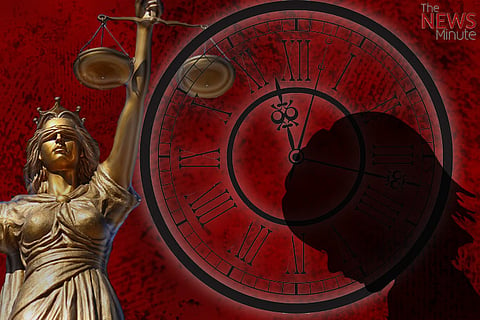

The Commercial Sexual Exploitation of Children (CSEoC) is an under-reported issue in the country. With not much research available and the complex nature of the issue, it is difficult to even get crucial statistics related to the crime.
According to National Crime Records Bureau (NCRB) data, there were 15 reported cases of minors – with a total of 25 victims – who were sold for prostitution in metropolitan cities in India. Simultaneously, there was just one reported case of the buying of minors for prostitution with one reported victim.
This excludes cases of human trafficking and Protection of Children from Sexual Offences Act (POCSO), and the statistics barely scratch the surface of a vicious problem that runs deep.
According to Childline India, a helpline run by the government, the country is not just a source, but also a destination and transit country for trafficking across several purposes, including commercial sexual exploitation. And a large chunk of the victims are minors.
"There are no national or regional estimates for the number of children trafficked every year. But 40% of prostitutes are children, and there is a growing demand for young girls in the industry," the Childline website says.
Some reports have pegged the number of victims of child prostitution in the country at as high as 1.2 million.
However, when cases of CSEoC come to light, activists point out that they are often registered under the Immoral Trafficking Prevention Act (ITPA). And they say that it is high time such cases are mandatorily booked under POCSO.
Any sexual activity with a minor is a crime
POCSO, which defines a child as anyone below 18 years of age, looks specifically at sexual offences against children, and any case which involves any kind of sexual activity with children has to be registered under POCSO, says Vidya Reddy of Tulir, an NGO which works on the prevention and healing of child sexual abuse in India.
In addition, Section 19 of the Act also states that any person who has an apprehension or knowledge of any sexual offence against children must report it to the authorities. "So if a child was in a brothel there obviously could be apprehension that the child, because of the heightened vulnurability, may have been/ be/will be in some sort of sexual activity. Therefore according to Section 19 of POCSO, it has to be reported to the police who have to record a case and initiate investigation" she says. "Futhermore a perusal of Section 16 of the ACT which deals with abetment can clearly be used."
POCSO is unambiguous, unlike ITPA
Roop Sen, a founding member of Sanjog, an NGO that works on strengthening and implementing anti-trafficking laws, states that customers must be indicted under POCSO instead of the Immoral Traffic (Prevention) Act, as the latter, he says, is not clear about penalising customers.
"If the sexual abuse survivor is below 18 years of age, then POCSO immediately indicts all men who have had sex with the child. ITPA and Section 370 (Trafficking of persons), on the other hand, are ambiguous on this issue. The major significance of POCSO, apart from other things such as victim compensation, etc., is that it directly indicts the customer," Roop says.
This, however, will not apply to people who have sex with minors as the POCSO law is very specific about child sexual abuse.
"It specifies who a child is, i.e., anyone below the age of 18 years, but does not state who can the offender be. So any person committing the crime can be booked under POCSO," says senior advocate BT Venkatesh, whose work focuses on human rights.
POCSO not invoked in many cases
"POSCO is clearly applicable in all cases where children have been sexually abused, either by trafficking or by an act. And it does not matter who commits the act. It has to be invoked in each and every case of commercial sexual exploitation of a child," Venkatesh adds.
In fact, last year the Supreme Court, in a landmark judgment, said that sex with a minor wife can also amount to rape. The husband will be held liable to be prosecuted if the woman files a complaint within a year of the sexual act.
While the law is clear, Venkatesh agrees that in a good number of cases, POCSO is not involved. This challenge can be addressed by bringing about more awareness among authorities who deal with these cases.
Changing customer behaviour
Putting the onus on customers could also help reduce the demand for minors in the sex trade industry.
Roop explains that there are three categories of customers of commercial sex trade.
The habitual customers, who are 5% or less and who specifically demand minors; the preferential customers, who look for younger women, but do not have a particular obsession with minors; and casual customers who have no specific choices and may end up with a minor because the brothel manager sent him a one. Apart from customers demanding minors, brothel operators also prefer exploiting younger women because they are easier to control.
If customers realise they can be prosecuted, it could discourage them from seeking a minor.
"The ultimate aim is to pass on this message to all customers that having any kind of sexual activity with a person who is below 18 years of age is a strict no. The law enforcement needs to have a certain penalisation of those customers who go against the law. Then you are passing on a wider social message and are making a clear distinction between children and adults," he says.